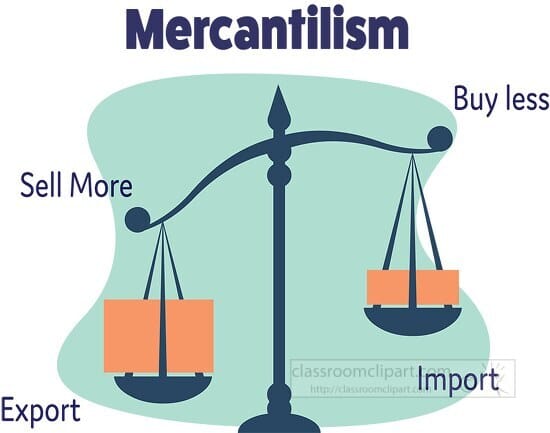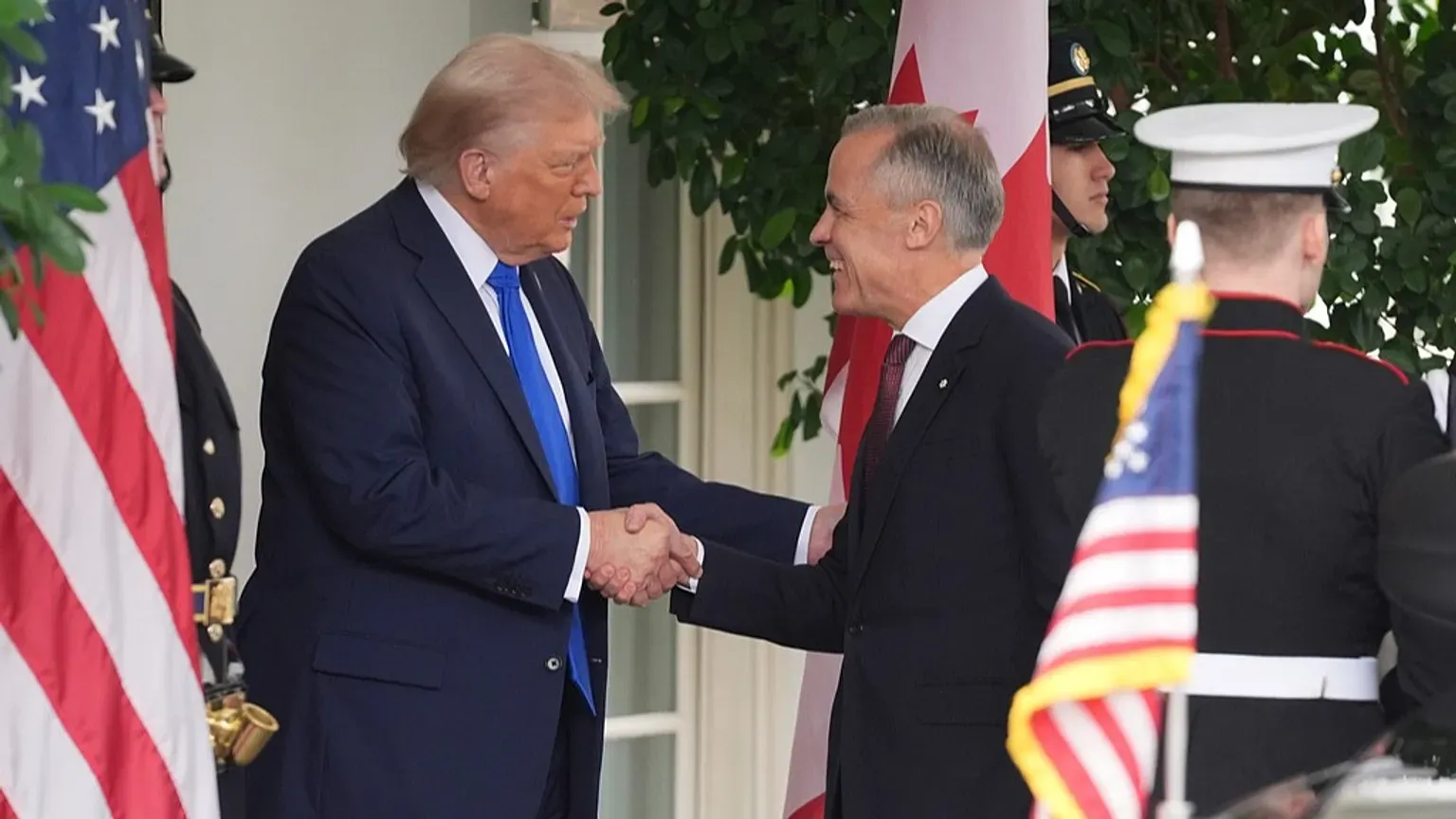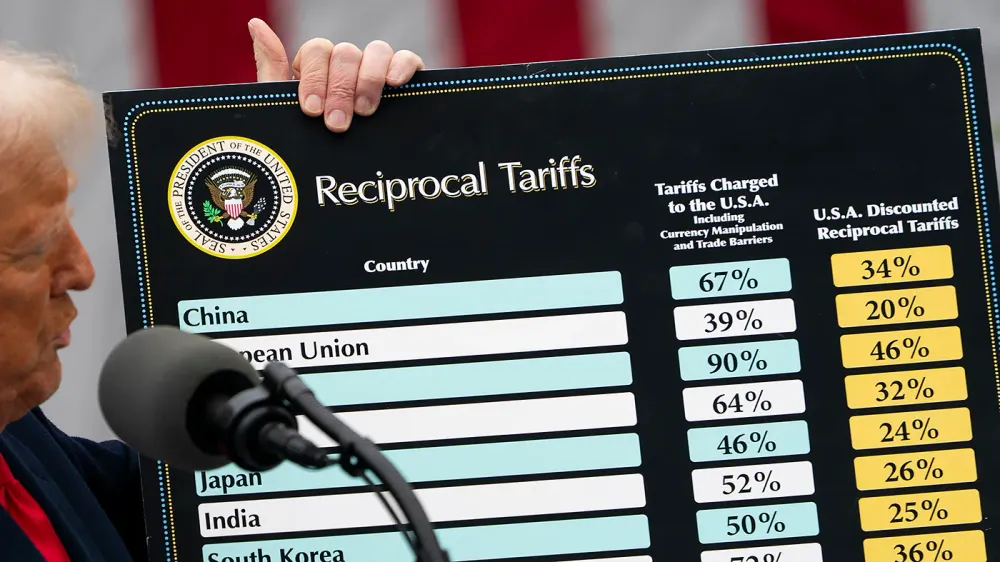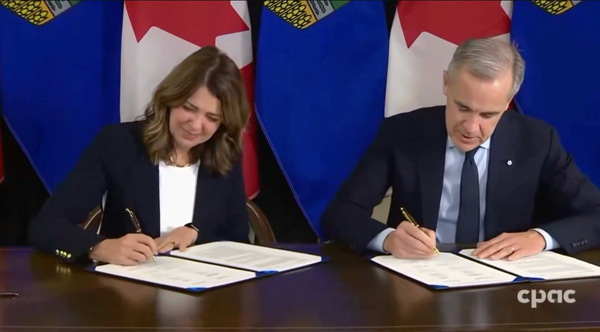SILVA: Trump, The 21st Century Mercantilist
Before we can begin discussing Trump’s interventionist policies, we must define key terms to enhance this article further. The first keyword is “mercantilism.” It is an economic system that focuses on generating wealth through the accumulation of “positive” or “profitable” balances, which a government should encourage through protectionist policies. The most notable of these policies are tariffs. Tariffs are a tax on a good or service; this tax is applied only to goods or services imported from outside the country.
The Trump administration and other protectionist governments have claimed that this will keep jobs within their home country — in this case, America. The last thing we should note about protectionist policies is the “positive” economic balance they seek.
For example, a “positive” balance occurs when a country exports more goods or services than it imports from other countries. Trump’s government and others aim for this “positive balance” to bring jobs and a more competitive marketplace to their own countries.

Why has mercantilism failed as an economic system?
Mercantilism has failed for the same reasons it seeks to defend. First, we have the “problem” of importing more than exporting. This is a weak argument since there are different types of economies in many countries, such as technological innovations, agriculture, minerals, natural resources, and many more. America is a technological powerhouse; most of the biggest inventions in the world come from America or are fabricated there, like AI, semiconductors (designed by America, produced in Taiwan), the iPhone, Amazon, Nvidia, and many more companies. The question here becomes: how can you expect a country whose biggest industries are based on innovation to have big factories or crops when it is more productive doing advanced research? That is why the balance is “negative.” Still on the same subject, just because your balance is negative in trade does not mean it is unprofitable, since profits for Austrian economists include more than just money — they also include the utility and satisfaction felt by the consumer.
Tariffs, like any other tax, the government creates, are always passed down through hidden hikes in the prices of goods and services. For example, a book that before cost $100 now, with tariffs, will cost $190. This is just another way of raising taxes on its own people, who need such resources to survive. An American example was during Trump’s first term: by tariffing steel by 25%, the price of a washing machine rose up to 50% of its value when it arrived within American borders. This is not only true for America — such interventionist policies hurt every country where they are tried. In Brazil, any international goods are taxed through tariffs of 90%, again raising prices on all goods. The bad part is that since we have less of a product — let’s say the washing machine — not only does the tariff hit us, but also demand remains high, explaining why it doubled in value after the tariff.
Another point, still on the topic of tariffs, is the division of labour, which states that the more specialized a society is in a certain niche job, the more productive this industry will be. With tariffs, the inverse happens, since now they need “unnecessary” labour that could be done in another country, reducing the whole country’s productivity due to catallaxy levels being affected and causing distortions in prices (which go way up, since now spontaneous order is slower and less effective).
Canada’s situation amid contemporary mercantilism
As early as March of this year, the Trump administration has targeted specific sectors of Canadian exports to America, all of them receiving 25% tariffs, except the Canadian energy sector, which faces a 10% tariff (mostly affecting border states that need the energy, which America is unable to provide, probably due to opportunity cost). The Canadian government’s response was something else. First, they decided to put 25% reciprocal tariffs on all American goods crossing the border, but as of September 1st, the Canadian government decided to keep tariffs only on steel, aluminum, and the automobile industry, showing that the current Carney administration on trade is all bark and no bite, since they lifted tariffs without any benefits.
This has cost many Canadian jobs for what seems to be a bad bluff. The government should either have stayed with the reciprocal tariffs, or never have put them in place, since this is not a game of chess — it is people’s lives that politicians are playing with. Unfortunately, many people are at the mercy of the government. This is what many forms of authoritarianism look like: one in which they can simply put at risk a huge range of jobs, which not only affects their own country but the whole economic web, which is the catallaxy.
Internally, every single party in the current House of Commons — Liberal, Conservative, NDP, Bloc, and Green parties — supports reciprocal tariffs on goods, showing no representation for those who disagree. This is another example of how some ideals are unified through the parties. Even if their economic ideals differ, strangely they have come together for a “greater good,” which, as stated already, has made life harder for us, while they do not need to care about losing their jobs, showing how authoritarianism is present in all current parties at their core foundations.

How to solve this problem?
If I were in charge of the Canadian government, the first step would be to lift all tariffs from any country and industry. After that, I would get rid of supply management so we can start to produce for ourselves and make our goods cheaper and better, while employing many Canadians who may have lost their jobs due to America.
After those measures were implemented, I would find better partners for trade, like the EU, Mercosur, the Asian Tigers, and others. With new trade partners, we can finally break our dependence on America and guarantee we are connected to less interventionist countries. At the same time, we can deepen our division of labour both domestically and internationally, making world productivity increase and the prices of goods decrease.
Another strategic point is regulations in companies. For example, the uncertainty created by the administration in America scares investors. With certain freedoms, less regulation, and less intervention, we will be able to attract some of those entrepreneurs to invest in our economy, without the need for a bureaucrat.
The only way out of such an economic situation is through personal freedoms, which will predominantly lead us to a more civilized, innovative, and happier society. The only thing we need is peace, love, and liberty. Peace and love can be achieved through liberty, so we must not wait to act. We should hold the government accountable for its inability to govern over us while having huge powers over individuals.
When goods don't cross the border, soldiers will — Frédéric Bastiat
The views expressed in this piece are those of the author and do not necessarily reflect the editorial position of The Provincial Times or Left Lane Media Group. Read our Content Policy here.Read our Content Policy here.




